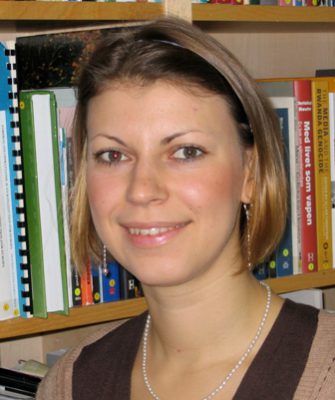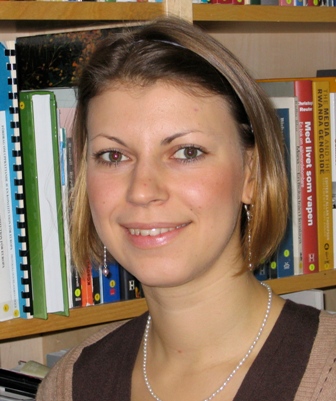Hi Petra, what exactly are you doing in Tromso?
– I am a guest resarcher at the university of Tromso and am writing about the legal status of the Northern Sami and the Kven languages in Norway, within the framework of the research project Eldia that the Peace Institute participates in and which focuses on Finno-Ugric languages (you can read more about the Eldia project on www.eldia-project.org).
Is it interesting?
– It is interesting to be immersed into the minority and indigenous complex of problems in Norway, when I already am relatively familiar with the situation in Sweden and Finland. The big difference is that Norway has ratified the ILO Convention on Indigenous Peoples No. 169, while Sweden and Finland have not, which has brought about a situation where the Sami in Norway enjoy a stronger status according to international law, while the focus in Sweden and Finland is on the status of the Sami people as national minorities. This also has consequences for language rights. In addition, I landed in a heated debate about whether or not Tromso should be included in the Sami administrative region, which has revealed both ignorance and prejudices, but also knowledge and a willingness to understand one’s own history.
Are there any similarities between the language situation in northern Norway and that on Åland?
– As a matter of fact the language situations in northern Norway and on Åland differ widely. We have ONE strong protected Swedish language within defined borders, which is also shared by a neighbouring kin-State, Sweden. Varieties of Sami are spoken in Norway, Sweden, Finland and Russia, but not so many of those varities can be said to be standing strongly. Kven was recognised as a language of its own in Norway only in 2005 and is very similar to Finnish, although Finnish may be seen both as a support (with respect to the written language) and as a threat (with respect to the development of Kven as a language of its own). In addition, Finnish is the dominant language in our country even though Åland is unilingually Swedish, while the Finno-Ugric languages in northern Norway are minority languages. But I would like to add that it is exciting to apply arguments and thoughts from northern Norway to the Åland situation, which I have done in the form of a thought experiment in my blog on the homepage of the Peace Institute.
Now you are on your way home to Åland. How long will you be here and what will you be doing?
– I will be home on Åland at least for a month to finish writing up my report.
Where will you go next?
– Next I have planned to ride Icelandic horses and make waffles in the West Fjords of Iceland, which is my second home, this summer!
Read Petras blog piece here


 Petra Granholm is a globetrotter and researcher who has been participating in the activities of the Peace Institute since early age. At the moment, she is working as a field researcher for the Institute. We asked her exactly what it is she is doing in northern Norway.
Petra Granholm is a globetrotter and researcher who has been participating in the activities of the Peace Institute since early age. At the moment, she is working as a field researcher for the Institute. We asked her exactly what it is she is doing in northern Norway. 
